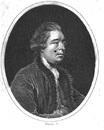Planning worship?
Check out our sister site, ZeteoSearch.org,
for 20+ additional resources related to your search.
- |
User Links
Person Results
Ludwig van Beethoven

1770 - 1827 Person Name: Ludwig von Beethoven Composer of "GERMANY" in The Praise Hymnary A giant in the history of music, Ludwig van Beethoven (b. Bonn, Germany, 1770; d. Vienna, Austria, 1827) progressed from early musical promise to worldwide, lasting fame. By the age of fourteen he was an accomplished viola and organ player, but he became famous primarily because of his compositions, including nine symphonies, eleven overtures, thirty piano sonatas, sixteen string quartets, the Mass in C, and the Missa Solemnis. He wrote no music for congregational use, but various arrangers adapted some of his musical themes as hymn tunes; the most famous of these is ODE TO JOY from the Ninth Symphony. Although it would appear that the great calamity of Beethoven's life was his loss of hearing, which turned to total deafness during the last decade of his life, he composed his greatest works during this period.
Bert Polman
Ludwig van Beethoven
Thomas Tallis

1505 - 1585 Composer of "EVENING HYMN" in Christian Chorals Thomas Tallis (b. Leicestershire [?], England, c. 1505; d. Greenwich, Kent, England 1585) was one of the few Tudor musicians who served during the reigns of Henry VIII: Edward VI, Mary, and Elizabeth I and managed to remain in the good favor of both Catholic and Protestant monarchs. He was court organist and composer from 1543 until his death, composing music for Roman Catholic masses and Anglican liturgies (depending on the monarch). With William Byrd, Tallis also enjoyed a long-term monopoly on music printing. Prior to his court connections Tallis had served at Waltham Abbey and Canterbury Cathedral. He composed mostly church music, including Latin motets, English anthems, settings of the liturgy, magnificats, and two sets of lamentations. His most extensive contrapuntal work was the choral composition, "Spem in alium," a work in forty parts for eight five-voice choirs. He also provided nine modal psalm tunes for Matthew Parker's Psalter (c. 1561).
Bert Polman
Thomas Tallis
John Hawkesworth

1715 - 1773 Person Name: James Hawkesworth Author of "In sleep's serene oblivion laid" in The Praise Hymnary Hawkesworth, John, LL.D. (b. 1715, and d. Nov. 1773), a writer in the Gentleman's Magazine, proprietor and editor of the Adventurer, and friend of Johnson, Warton, and other literary men of note, published, in 1760, Poems and Translations, and was the author of the well-known Morning hymn "In sleep's serene oblivion laid." This hymn was composed in 1773, "about a month before his death, in a wakeful hour of the night, and dictated to his wife on rising. It appeared in the Universal Theological Magazine for March, 1802." (Miller's Singers & Songs, &c, p. 210.) It was given in Collyer's Selection, 1812; the Leeds Hymn Book, 1853; and others; and is in somewhat extensive use in America. It sometimes begins, as in the American Unitarian Hymns for the Church of Christ, 1853, with stanza ii., "Newborn, I bless the waking hour."
-- John Julian, Dictionary of Hymnology
John Hawkesworth
Joachim von Burgk
1546 - 1610 Person Name: Joachim A. Burck Composer of "DAWN" in Church Chorals and Choir Studies
Joachim von Burgk
Anonymous
Composer of "TRANQUEBAR" in Immanuel Hymnal In some hymnals, the editors noted that a hymn's author is unknown to them, and so this artificial "person" entry is used to reflect that fact. Obviously, the hymns attributed to "Author Unknown" "Unknown" or "Anonymous" could have been written by many people over a span of many centuries.
Anonymous


 My Starred Hymns
My Starred Hymns

